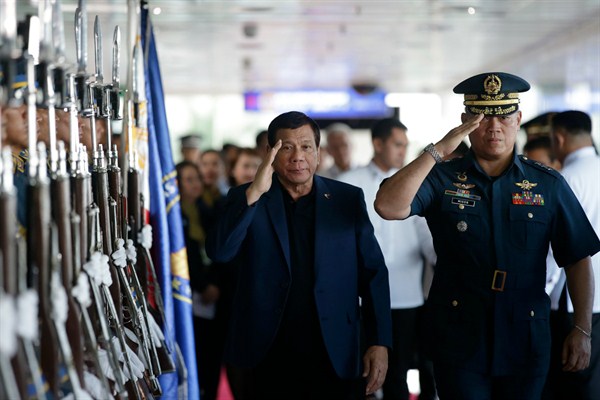This past week, Southeast Asia observers have been buzzing over a leaked transcript of a phone call, made in April, between U.S. President Donald Trump and Philippine President Rodrigo Duterte. In the call, the two men spoke of each other warmly, with Trump praising Duterte’s brutal drug war in the Philippines. Trump told Duterte he was “doing an unbelievable job on the drug problem,” and invited him to the White House.
Trump also seemed to ask Duterte, hardly a specialist on Northeast Asia, for advice on how to deal with North Korean dictator Kim Jong Un and his nuclear and missile arsenal. Trump even let slip that the U.S. had moved two nuclear submarines toward the Korean Peninsula.
Duterte’s solicitous tone with Trump was a sharp contrast to how he treated former President Barack Obama, who he told to “go to hell” and called a well-known Filipino curse last year. Unlike Trump, the Obama administration was critical of Duterte’s bloody drug war, which has now allegedly resulted in the deaths of more than 7,000 people—many of them in extrajudicial killings—since Duterte became president last year. Human Rights Watch has likened Duterte to notorious former Philippine dictator Ferdinand Marcos, whom Duterte seems, at times, to openly admire.

